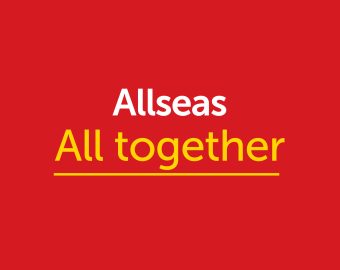Incoterms 2020
19 July 2019
1 January 2020 will see a brand new set of revised Incoterms coming in to play. It has been nearly 10 years since they were last updated and industry insiders are speculating on what these changes might be. But first…
What are Incoterms?
Incoterms are a set of international rules set by the International Chamber of Commerce, and relate to the terms of international commercial sales contracts. They are essential and need to be considered by all importers and exporters as they determine:
- The party responsible for covering the cost of each part of the international journey
- The party responsible for the shipment at each part of the international journey
- The party responsible for arranging transportation
- The party responsible for ensuring the insurance for the goods
- The documentation needed and the party responsible
There are currently 11 different Incoterms, these are divided into four groups C, D, E, and F, the groups depending on the delivery location and who is responsible for covering the cost of each party of the journey. Each category is broken down further in to the different types of Incoterms to cover different types of scenarios that may occur.
It’s important to be familiar with the Incoterms as you will need to choose the ones that best suit the shipment and those involved. The current set of Incoterms are:
Incoterms Group C
Seller is responsible for all of the costs incurred at the destination port, this includes international transportation, however when goods are loaded on the means of transport, risks are then transferred to the buyer.
- CPT Carriage Paid To
- “Carriage Paid To” means that the seller delivers the goods to the carrier or another person nominated by the seller at an agreed place (if any such place is agreed between parties) and that the seller must contract for and pay the costs of carriage necessary to bring the goods to the named place of destination.
- CIP Carriage & Insurance Paid To
- “Carriage and Insurance Paid to” means that the seller delivers the goods to the carrier or another person nominated by the seller at an agreed place (if any such place is agreed between parties) and that the seller must contract for and pay the costs of carriage necessary to bring the goods to the named place of destination.
- CFR Cost & Freight
- “Cost and Freight” means that the seller delivers the goods on board the vessel or procures the goods already delivered. The risk of loss of or damage to the goods passes when the goods are on board the vessel. the seller must contract for and pay the costs and freight necessary to bring the goods to the named port of destination.
- CIF Cost, Insurance & Freight
- “Cost, Insurance and Freight” means that the seller delivers the goods on board the vessel or procures the goods already delivered. The risk of loss of or damage to the goods passes when the goods are on board the vessel. The seller must contract for and pay the costs and freight necessary to bring the goods to the named port of destination.
- ‘The seller also contracts for insurance cover against the buyer’s risk of loss of or damage to the goods during the carriage. The buyer should note that under CIF the seller is required to obtain insurance only on minimum cover. Should the buyer wish to have more insurance protection, it will need either to agree as much expressly with the seller or to make its own extra insurance arrangements.”
Incoterms Group D
The seller bears all of the risks and costs that are incurred in bringing the goods to the destination country.
- DAT Delivered At Terminal
- “Delivered at Terminal” means that the seller delivers when the goods, once unloaded from the arriving means of transport, are placed at the disposal of the buyer at a named terminal at the named port or place of destination. “Terminal” includes a place, whether covered or not, such as a quay, warehouse, container yard or road, rail or air cargo terminal. The seller bears all risks involved in bringing the goods to and unloading them at the terminal at the named port or place of destination.
- DAP Delivered At Place
- “Delivered at Place” means that the seller delivers when the goods are placed at the disposal of the buyer on the arriving means of transport ready for unloading at the named place of destination. The seller bears all risks involved in bringing the goods to the named place.
- DDP Delivered Duty Paid
- “Delivered Duty Paid” means that the seller delivers the goods when the goods are placed at the disposal of the buyer, cleared for import on the arriving means of transport ready for unloading at the named place of destination. The seller bears all the costs and risks involved in bringing the goods to the place of destination and has an obligation to clear the goods not only for export but also for import, to pay any duty for both export and import and to carry out all customs formalities.
Incoterms Group E
Buyer is responsible for collecting goods at seller’s premises or another named place and for all associated risks and costs.
- EXW Ex Works
- “Ex Works” means that the seller delivers when it places the goods at the disposal of the buyer at the seller’s premises or at another named place. The seller does not need to load the goods on any collecting vehicle, nor does it need to clear the goods for export, where such clearance is applicable.
Incoterms Group F
Seller is responsible for delivery of goods to the buyer’s agreed method of transport. From that point, the buyer is then responsible for all other associated costs and risks.
- FCA Free Carrier
- “Free Carrier” means that the seller delivers the goods to the carrier or another person nominated by the buyer at the seller’s premises or another named place. The parties are well advised to specify as clearly as possible the point within the named place of delivery, as the risk passes to the buyer at that point.
- FAS Free Alongside Ship
- “Free Alongside Ship” means that the seller delivers when the goods are placed alongside the vessel (e.g., on a quay or a barge) nominated by the buyer at the named port of shipment. The risk of loss of or damage to the goods passes when the goods are alongside the ship, and the buyer bears all costs from that moment onwards.
- FOB Free On Board
- “Free On Board” means that the seller delivers the goods on board the vessel nominated by the buyer at the named port of shipment or procures the goods already delivered. The risk of loss of or damage to the goods passes when the goods are on board the vessel, and the buyer bears all costs from that moment onwards.
Incoterms 2020 – Potential Changes
FAS and EXW
These Incoterms are expected to be retired, as EXW usually applies more to domestic trade it could be considered to go against the EU’s new customs codes, and FAS is rarely used and is no longer a necessary option.
DDP
This Incoterm is potentially being retired in its current form for the same rationale as EXW. But, there is the potential that it could be split into two different categories instead;
- DTP Delivered at Terminal Paid, the seller would be responsible for all of the transport-related costs, this includes customs duties, when goods are delivered to a terminal at the destination
- DPP Delivered at Place Paid; the seller is responsible for all transport-related costs, this includes customs duties, when goods are delivered to somewhere other than a transport terminal
FCA
This is one of the most commonly used Incoterm, and there is the potential for it to be split in to two different variations – one for land and one for sea.
CNI
Cost and Insurance. This is potentially a brand new Incoterm that could come into play in 2020. This possible new Incoterm would dictate that, from the departure port, the exporter has responsibility for cargo insurance, while the buyer is responsible for the risks incurred with transportation. This new Incoterm would cover the gap between FCA and CFR/CIF.
As well as the possible retiring of existing and creation of new Incoterms, the Drafting Committee is analysing other issues that will be included in the new version of the Incoterms 2020, such as transportation security and regulations on transportation insurance.
ICC are reportedly intending to make Incoterms 2020 easier to understand, reducing any grey areas and look to eliminate misunderstandings.
It was announced on 17 July 2020 that the revised Incoterms 2020 will be announced early in September 2020. It has also been announced that, amongst necessary steps to ensure that the Incoterms 2020 are convenient and accessible to all users, there will be a mobile application that will also include offline features so regardless of where you are, in the middle of the high seas, or at a port with no internet connection, the Incoterms rules app will be there to guide you.
Sign up to our newsletter
To receive bi-monthly industry updates, plus opinion and insights from our expert Logistics Consultants, sign up here.
This site is protected by reCAPTCHA and the Google Privacy Policy and Terms of Service apply.


